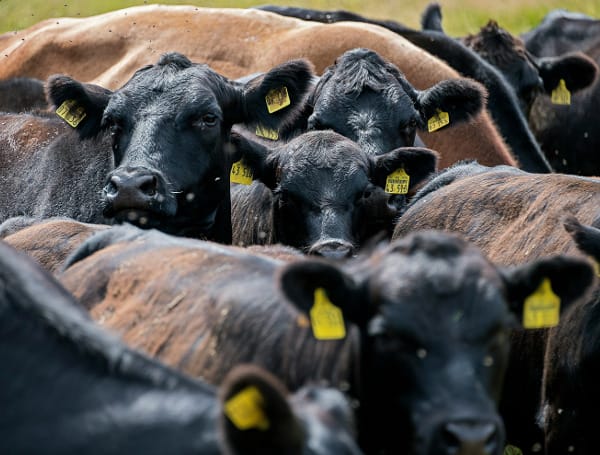Livestock (File) Florida Commissioner of Agriculture Wilton Simpson has issued Emergency Rule 5CER24-6, updating specific restrictions on the impo
Florida Commissioner of Agriculture Wilton Simpson has issued Emergency Rule 5CER24-6, updating specific restrictions on the importation of cattle into Florida to help prevent the spread of highly pathogenic avian influenza (HPAI).
The emergency rule builds upon previously issued safety protocols, policies and guidance, and updates specific movement restrictions and testing requirements for imported cattle initially imposed in Emergency Rule 5CER24-4. To date, there have been no detections of HPAI in any livestock in Florida.
“The safety and security of our food supply is critical to our prosperity, and this updated emergency rule is another proactive step Florida is taking to protect our livestock and the health of our citizens,” said Commissioner Wilton Simpson. “Florida is committed to working collaboratively with federal, state, and industry partners to mitigate the risks posed by highly pathogenic avian influenza and ensure the continued safety and integrity of Florida’s agriculture industry, which has a more than $180 billion annual impact and supports more than 2.5 million jobs.”
Read: 2024 Winner Of Agricultural-Environmental Leadership Award In Florida Announced
In addition to incorporating the United States Department of Agriculture’s emergency rule, Emergency Rule 5CER24-6 imposes the following temporary restrictions:
- Dairy cattle being imported into Florida must meet the testing and movement requirements of the USDA federal order.
- No cattle exposed to or infected with Bovine Associated Influenza A Syndrome may be imported into Florida.
- Dairy cattle imported from states with suspected or confirmed cases must be accompanied by a valid Official Certificate of Veterinary Inspection completed no more than 7 days prior to importation, unless moving directly to slaughter.
Emergency Rule 5CER24-6 is effective immediately and will remain in place until further notice. The Florida Department of Agriculture and Consumer Services will continue to monitor the situation closely and provide updates as necessary.
Bovine Associated Influenza A Syndrome (H5N1) is a highly contagious disease with detrimental effects on the health and milk production of dairy cattle. Given the rapidly evolving nature of this disease, stringent biosecurity measures are essential to contain its spread and mitigate its impact.
Read: Segrest Farms’ Sandra Moore Wins 2024 Woman Of The Year In Florida Agriculture
It is critically important that farmers practice good biosecurity measures. Producers with concerns should reach out to their veterinarian, State Animal Health Official, and/or Area Veterinarian in Charge.
If an animal is displaying signs of illness or tests positive for HPAI, the animal should be separated from other animals on the farm and heightened biosecurity measures should be taken to ensure HPAI does not spread to other species. Additionally, farmers are advised to avoid housing multiple species of animals together at any time. More specific information on biosecurity practices are available:
Additional information from the FDA:
- Updates on Highly Pathogenic Avian Influenza (HPAI)
- Questions and Answers Regarding Milk Safety During Highly Pathogenic Avian Influenza (HPAI) Outbreaks
This week, the department reminded Floridians that pasteurization is effective in inactivating the virus in milk products. Raw milk and raw milk products are not approved for human consumption in Florida.
Raw milk and raw milk products are not pasteurized, and therefore are at risk for containing the live virus. Exposure and consumption of raw milk and raw milk products can put both humans and animals at risk and have the potential to further spread the virus.
Help support the Tampa Free Press by making any small donation by clicking here.
Android Users, Click To Download The Tampa Free Press App And Never Miss A Story. Follow Us On Facebook and Twitter. Sign up for our free newsletter.

